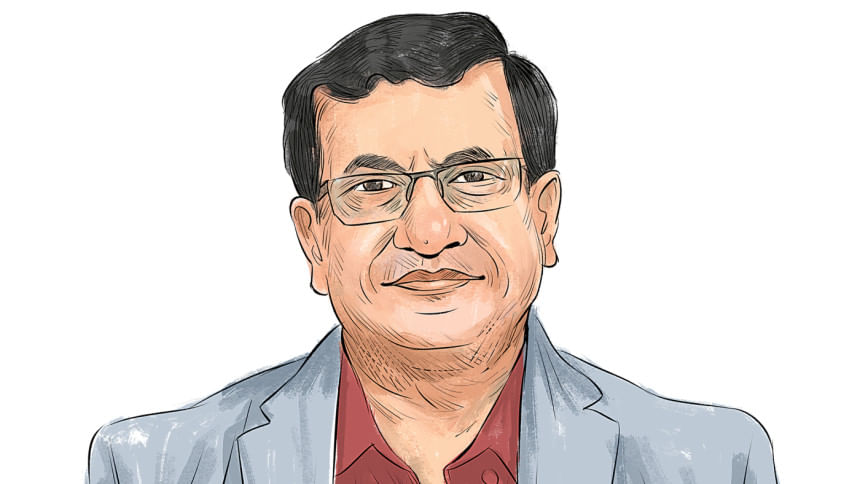In 2002, in a revolutionary move, Bangladesh became the first country to ban thin plastic bags. Needless to say, it failed to achieve any tangible success. More initiatives in the later years also ended with similar results. Following the political changeover in 2024, the interim government renewed a crackdown on plastic, with Environment Adviser Syeda Rizwana Hasan ordering a ban on polythene bags in supermarkets and grocery stores from October last year. A year later, it appears that crackdown yielded little result yet again.
According to Md Rashedul Karim Munna, president of the Bangladesh Jute Diversified Products Manufacturers and Exporters Association, the problem lies not in intent but in execution.
"Without strong coordination across ministries, support for plastic producers to transition, and mass awareness among consumers, the ban risks falling short just as similar efforts have in the past," Munna told The Daily Star in an exclusive interview recently.
As part of the anti-plastic efforts, the government has recently banned three single-use plastic items, including straws and cotton buds, within the Secretariat from October 2, 2025.
Munna praised the government's intent but warned that symbolic actions cannot replace a comprehensive strategy. "Announcements alone won't bring results unless backed by serious planning."
He pointed out that more than 100 countries, including EU members and Australia, have successfully implemented bans or restrictions on single-use plastics.
"What these countries did differently is they prepared the population," he said. "They ran awareness campaigns, increased taxes on harmful materials, and offered financial support to businesses producing alternatives."
In contrast, he noted that Bangladesh relied on policy declarations and limited pilot projects.
For example, the government allocated Tk 15 crore for Dhaka and Tk 10 crore for Chattogram to promote jute bags under a Climate Development Fund project. "It is not enough to create lasting change. Without wide-scale awareness and real alternatives, people will always fall back on plastic."
He also pointed to the absence of a transition plan for workers in the plastic manufacturing sector.
"The people making plastic products are not our enemies. If we support them to switch to alternatives, they will consider it. Right now, they feel left out of the conversation," he said, adding that this is helping fuel underground and illegal production.
He also said the bans are usually imposed without prior consultation with plastic sector stakeholders.
The diversified jute goods producer stressed the need for targeted financial support, training, and subsidies to help manufacturers adapt equipment and retrain staff for jute-based or recyclable alternatives.
Moreover, he stated that some industry resistance has practical reasons. "Sectors like cement or fertiliser need coated bags to prevent leakage. Regular jute bags don't work for them," he explained, calling for government-backed R&D and technical support to modernise packaging systems.
"People will not change their habits unless they understand what's at stake. And it's not just the environment, there are serious health risks tied to plastic use," he said, linking growing prevalence of cancer, kidney and liver issues to toxins and microplastics leaching into the environment and food.
He called on researchers and the media to educate the public. "If people realise that avoiding plastic protects their health and their children's future, they will start making the switch."
According to Munna, the key to success lies in a long-term, strategic action plan with clear targets and deadlines. On top of this, there needs to be improved coordination between the environment, industry, commerce, and customs ministries.
"Right now, the environment ministry is taking the lead, but implementation is weak because others are not aligned," he said. "Without proper enforcement and accountability, this will become just another paper policy."
He recommended giving enforcement bodies clear authority and resources, and improving waste management systems to support recycling.
When asked why stronger action has not yet been taken, Munna pointed to the lack of public pressure and political will. He remains hopeful, however, that change is possible.
"We don't want to be opponents of the plastic industry. We want to help them transition," he said. "If there is awareness, support, and enforcement, this can be a success story like the garment industry's transformation after Rana Plaza."
He cited examples like Coca-Cola and other global brands moving toward recyclable packaging, arguing that even large corporations are shifting, and Bangladesh can too.
"The time to act is now. With smart planning, we can protect our environment, promote local industries, and safeguard public health – all at the same time," he said.

